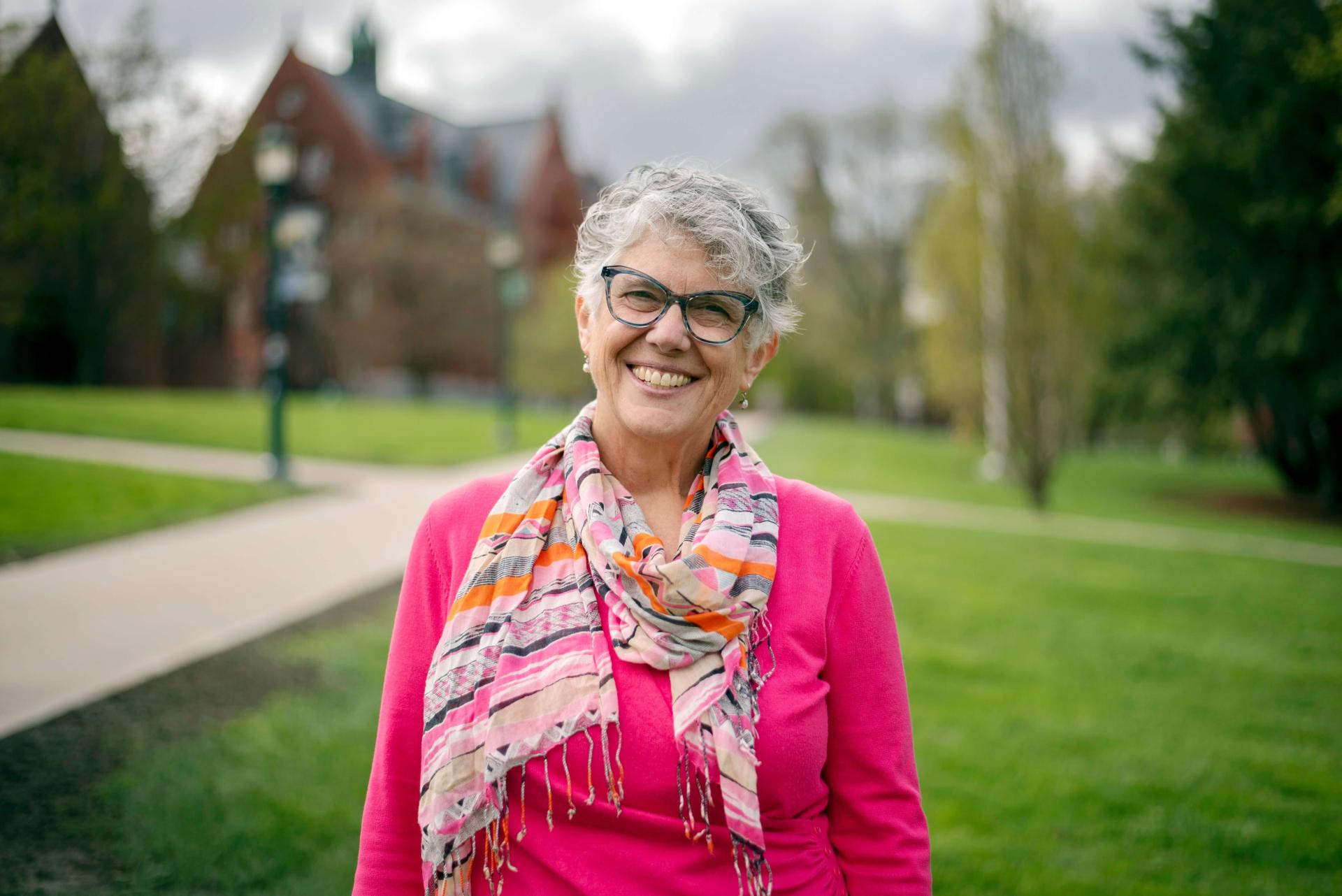Gender-affirming care is an essential function of primary care services and, simply put, it supports students in being healthy, engaged, and social. The intricacies of supporting students in actualizing their gender identity are woven into physical, mental, and emotional wellbeing. But for students not receiving this type of care, this relatively complex and individualized subject can be difficult to understand.
Sharon Glezen, MD has been a physician with Student Health Services through the Center for Health and Wellbeing at UVM since 2016. Certified by the World Professional Association of Transgender Health, Dr. Glezen can directly see the impact this service has on her patients throughout their time at UVM. “We believe firmly in the inherent dignity of all students and want to meet students where they’re at and affirm their best selves,” Dr. Glezen explains. “It's been shown that gender-affirming care for some people can be lifesaving care.”
Gender dysphoria—a term that refers to discomfort or distress caused by a discrepancy between a person’s gender identity and their sex assigned at birth—has a significant impact on mental health, feelings of isolation, and anxiety around the multitude of factors that make up gender identity. This experience can interfere with academic success and in building social connections. “What we do know about gender affirming care is that it decreases depression and anxiety and even decreases suicidal ideation and suicide attempts among patients who have really been struggling with the disconnect between their authentic gender and the expectations of society around them” Glezen says.
But what exactly is gender affirming care?
Gender affirming care can include hormone therapy or surgery, but some transgender and non-binary people seek more behavioral or social changes, rather than medical support. When students visit a provider at Student Health Services to discuss gender affirming care, Glezen explains that there’s an exploration between the student and the provider to find out more about what the student’s gender journey has been and what their goals are for their future.
Pursuing gender affirming care at Student Health begins with a series of at least three visits before considering prescriptions for hormones. This approach collects appropriate information, answers important questions, and takes the time to discover what each student needs to get the gender affirming care that is best for them at that moment. Some questions may ask about a patient's first experiences of gender dysphoria, when they first identified as their current, authentic gender, their goals for care, what they want moving forward, and more.
Beyond the Exam Room
Student Health providers also support students in affirming their authentic gender in ways that go beyond primary care services. Providers are well informed on campus resources and will help students connect to places such as Prism Center, which connects students to community support, programming, and LGBTQ+ resources. SHS clinicians also work closely with Counseling and Psychiatry Services (CAPS) to encourage students to seek mental health support when appropriate. “More and more,” shares Glezen, “we are realizing the importance of student engagement, mental health services, and gender affirming care all being linked.”
UVM sets itself apart as an institution by being positioned to support trans, non-binary, and gender fluid students. Resources and services include lived name and pronoun documentation, single stall bathrooms in every building, gender neutral housing, and more. Through the Prism Center, Residential Life, Center for Health and Wellbeing, and more, these resources are all ways in which UVM supports the affirmation of gender identity. Dr. Glezen points out, “If you can affirm your gender through coming out or through changing your name, or having those around you use pronouns that are appropriate for you, that is a gender-affirming action.”
Student Health Services is a strong starting point for students who are interested in gender affirming care. UVM students have access to gender-affirming care not available at every university or in every state at a time when threats to reproductive freedom and treatment for transgender, gender non-confirming, and non-binary students are increasing across the country.
